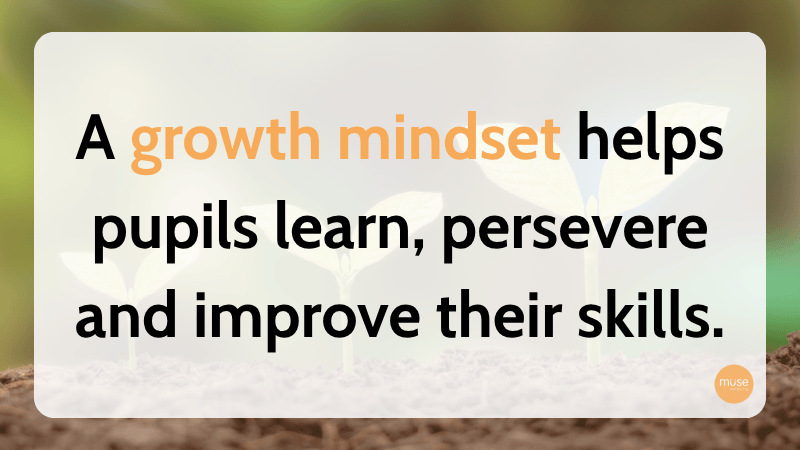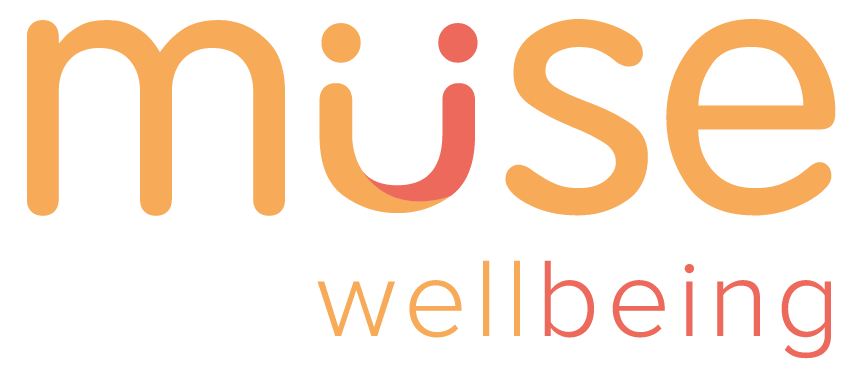Growth Mindset Education in Primary Schools
Oct 1
/
Muse Wellbeing

Author: David
David is the Muse Wellbeing director and lead curriculum developer. His Main passions include education, surfing and travelling.
David is the Muse Wellbeing director and lead curriculum developer. His Main passions include education, surfing and travelling.

Edited/Reviewed: Tashia
Tashia is a SENCO and LSA support lead with a love for inclusive education. An avid gardener, she enjoys the outdoors and hiking.
Growth mindset is a term closely associated with the work of psychologist Carol Dweck. Her research showed that intelligence and abilities are not fixed, but can be developed through effort, practice and persistence. This insight transformed the way schools, teachers and parents think about learning and pupil progress.
By the 2010s, growth mindset education was increasingly adopted in UK primary schools, where it became linked with resilience, character education and pupil wellbeing. Today, it forms a natural part of PSHE lessons and contributes to whole-school culture, with teachers and leaders embedding growth mindset approaches across subjects and year groups.
By the 2010s, growth mindset education was increasingly adopted in UK primary schools, where it became linked with resilience, character education and pupil wellbeing. Today, it forms a natural part of PSHE lessons and contributes to whole-school culture, with teachers and leaders embedding growth mindset approaches across subjects and year groups.
What Does Growth Mindset Really Mean?
A growth mindset is the belief that abilities can be developed through practice, effort and constructive feedback. It encourages people to see challenges as opportunities to learn and grow rather than as barriers or obstacles.

A fixed mindset assumes that intelligence, talents and ability are set in stone and cannot be changed. This can lead to pupils avoiding difficult tasks for fear of failure. This may often appear in everyday school situations, such as how pupils respond to challenges:
A pupil with a fixed mindset might say, “I’m really not good at maths.”
A pupil with a growth mindset might say, “I find maths a bit tricky, but I can improve with practice.”
This belief applies across all primary school subjects. Whether it is improving reading fluency, mastering times tables or learning a new skill in PE, pupils who adopt a growth mindset are more likely to persevere, build resilience and experience success.
Growth Mindset Vs Fixed Mindset
Both mindsets have different approaches to the same problems. This table illustrates how these two mindsets respond to common scenarios.

It is natural for both children and adults to move between the two mindsets. The key is recognising when a fixed mindset is taking hold and choosing to reframe it in a more positive and resilient way. Teachers must model this process so that pupils learn how challenges can become opportunities for growth.
Growth Mindset in Primary Schools
Classrooms provide rich opportunities to embed growth mindset education. Teachers can praise effort as much as achievement, emphasising the value of persistence and problem solving. Normalising mistakes as part of learning helps pupils see them as stepping stones rather than setbacks.
Normal text.
5 Quick Strategies for Teaching Growth Mindset
- Teachers must model a growth mindset for pupils to follow.
- Challenges become opportunities when a growth mindset is shown.
- Pupils learn resilience when mistakes are valued in class.
- A growth mindset helps children see effort as progress.
- Positive attitudes to learning are built step by step.
Practical strategies include “power of yet” posters, where pupils are reminded that not being able to do something is only temporary, and assemblies that celebrate perseverance as much as success. These approaches support and improves PSHE outcomes and student wellbeing by building resilience, confidence and emotional wellbeing alongside academic progress.
Supporting Growth Mindset in Early Years Education
Growth mindset education has long term benefits for pupils. It supports attributes that contribute to better learning outcomes and positive wellbeing. Beyond academic progress, it also fosters social and emotional growth, helping pupils navigate setbacks and develop positive attitudes to future challenges.
This aligns with wider Department for Education priorities, particularly the character education and wellbeing agenda. Embedding a growth mindset contributes to the whole-school approach of preparing pupils not just for tests and exams but for life's broader opportunities and challenges.
Why is Growth Mindset Important in Education?
Alongside the many core areas already explored, RSE also supports children to develop emotional literacy, learn how to communicate and resolve conflict, and respect diversity within their school and wider community. These skills link closely to safeguarding and help pupils prepare for the transition to secondary school. Key topics include:
Muse Wellbeing and Growth Mindset Education
Muse Wellbeing provides resources that help schools embed PSHE curriculum as well as growth mindset education in practical and age appropriate ways. Lessons on resilience, self worth, problem solving and wellbeing directly support pupils in developing positive learning attitudes. Reflection activities encourage children to recognise progress, celebrate effort and build perseverance.
Explore the full Muse Wellbeing curriculum for primary schools to see how a growth mindset can be embedded across your community.
Growth mindset sits at the heart of Muse Wellbeing’s approach to PSHE and whole-school culture. Schools using Muse resources gain access to carefully sequenced lessons that integrate mindset principles with statutory requirements, supporting both pupils’ wellbeing and academic progress.
Explore the full Muse Wellbeing curriculum for primary schools to see how a growth mindset can be embedded across your community.
Muse Wellbeing
Subscribe for RSHE & Wellbeing Updates & Learning Resources
Receive essential information on RSHE and wellbeing for your school and community
Thank you!

Copyright © 2026 Muse | All Rights Reserved.
Would you like to logout of Muse Wellbeing?


